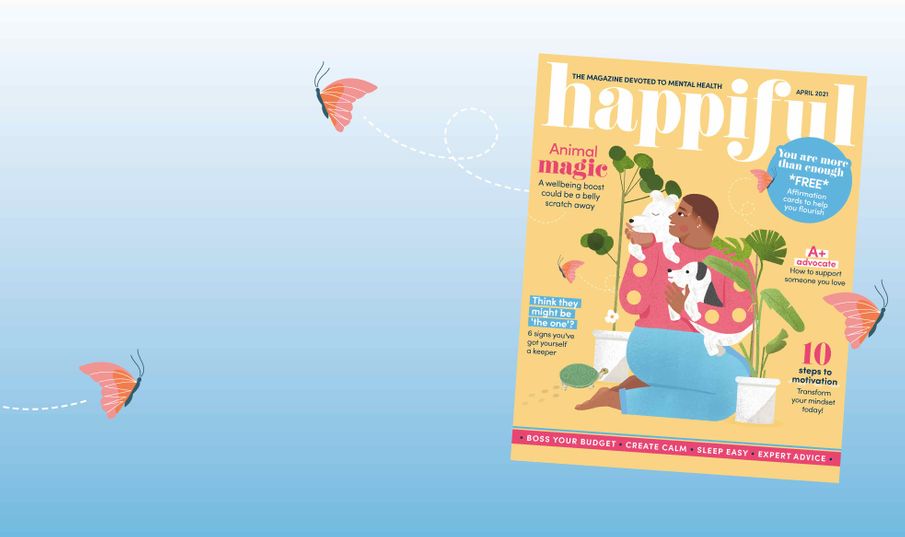As Happiful Magazine celebrates it’s fourth anniversary, Editor Rebecca Thair shares her hopes for future conversations about mental health and wellbeing
Happiful Magazine was launched 4 years ago on 20 March 2017, International Day of Happiness. While our mission to promote a happier, healthier society remains one of the key pillars of everything we do, there’s been an increase in our focus upon challenging stigma around mental health discourse and providing a safe, supportive, non-judgmental community that is open to anyone and everyone.
“We love how Happiful has grown and changed over the past few years,” Editor Rebecca Thair says. “And we’re so pleased at the amount of people who are regularly engaging with what we do, sharing their own experiences and sending supportive messages to others.
“However, over the past year, we’ve seen a huge increase in people searching across our Directories, including Counselling Directory, for support with anxiety, loneliness, depression, help with their relationships and suicidal thoughts. So we know that we can still do more to support each other, and Happiful is committed to doing just that.”
Reflecting on recent conversations in mainstream media around Meghan Markle’s mental health, Rebecca says that while some people believe the mental health discourse is forever improving, there’s still deep judgement and stigma present in many broadcast conversations.
Its about allowing greater and deeper conversation, and understanding the consequences of flippant statements about suicide and mental ill-health
“I'm not suggesting curtailing anyone’s right to an opinion,” she shares. “Its about allowing greater and deeper conversation, and understanding the consequences of flippant statements about suicide and mental ill health.
“Of late there seems to have been an increase in these one-sided conversations which fail to include the viewpoints of those who work in the profession every day, and those who live with mental illness. These sensationalist diatribes are far from painting the full picture of what it really means to live with mental health challenges, and they are damaging.”
The outpouring of messages following the broadcast of Roman Kemp: Our Silent Emergency and Caroline Flack: Her Life and Death, she explains, helps us to remember how very real, present and urgent the issues around mental health are, and that nobody - as with physical health - is immune from suffering.
Too many people expect those in the public eye to behave like a punching bag for their opinions, simply take the hit and bounce back again
“Too many people expect those in the public eye to behave like a punching bag for their opinions, simply take the hit and bounce back again - but that’s impossible,” Rebecca adds.
“We are all human, blood runs through all of our veins, and we need our organs to live and function properly. That includes the brain, which can be impacted by our life experiences and poor health like any other organ. No one is protected from that possibility.”
Rebecca and the Happiful team are working on numerous ways to counter the stigmatising talk, so often apparent in the mainstream media.
“We'll continue to provide as much support as we can, sending our digital magazine for free to over 115,000 people every month, and by providing access to the Happiful App and all its resources for free,” Rebecca explains.
“We’ll also continue to work with mental health charities to share the free support available and create partnerships to reach as many people as possible, and let them know there are spaces and media outlets, including ours, that can help not harm them when it comes to finding out more about their own concerns and conditions.”
If you need help, you can contact the Samaritans 24 hours a day, 7 days a week on 116 123 or email jo@samaritans.org.
In the podcast episode below, Lucia Capobianco from Samaritan’s explains what happens when you call and how they can help you.
If you’re looking for a therapist, find the right one for you on Counselling Directory.


Comments